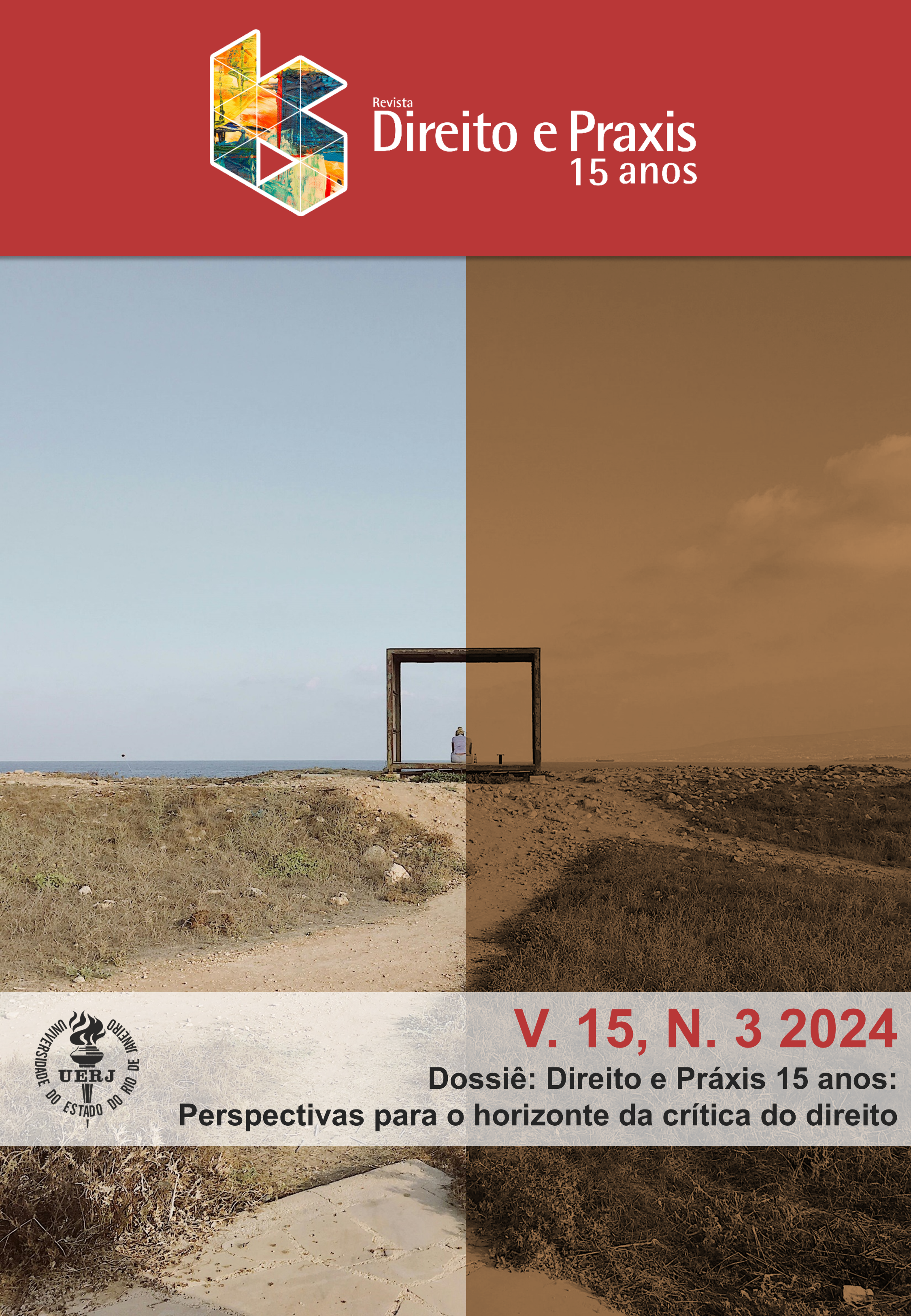For a critique of rights without guarantees
Keywords:
Critique of rights, Struggle for rights, Critical theory, Political organization theory, Political ecologyAbstract
The article critiques our understanding of the struggle for rights, particularly addressing us, "legal critics." It draws on various forms of political organization within Brazil's popular movements and a reinterpretation of our theoretical tradition. We adopt the hypothesis that the ways we conceive the politics of social emancipation are tied to how we diagnose and interpret the role of rights struggles. Our contribution to this debate engages with recent movements, coalitions, and rights advocacy platforms that have emerged in the country post-2013, which emphasize the centrality of rights-based discourse in their names, action strategies, and political organization forms. We will illustrate how these recent experiences, organized in coalitions and platforms of subjects and practices, concretely and conceptually weave an organizational ecology of social struggle that challenges our traditional repertoires of critical analysis, raising new issues concerning the stakes involved when addressing the multiple crises of liberal democracy and the roles of rights language in social transformation. Subsequently, we will revisit, as a glimpse, part of the traditional critique of rights typically developed in the country, which has served as a theoretical bulwark to contest the potentialities of social struggles expressed in legal grammars, comparing it to the paths opened by the narrated experiences. Proposing to add another reflective matrix to the traditional agendas for the critique of rights in Brazil, we will explore a theoretical path opened by our recent research agendas, which tests the profitability of rights critique by considering it through political organization theory, as an ecology of praxis, and some of its analytical developments. The aim is to illustrate the profitability of a critique that is more political than prescriptive regarding these experiences, seeking to regenerate our materialist analysis repertoires in "ecological" terms, recognizing how the creative plurality of subjects and practices can be transformed into a strength rather than a weakness of social struggle forms.
Downloads
Downloads
Published
How to Cite
Issue
Section
License
Copyright (c) 2024 Julia Ávila Franzoni (Autor/a)

This work is licensed under a Creative Commons Attribution 4.0 International License.
The authors the sole responsibility for their texts.
It is allowed the total or partial reproduction of the articles of the Journal Law and Praxis, if the author is mentioned.
This work is licensed under a Creative Commons Attribution-Noncommercial-Share Alike 4.0 Unported License.
This license allows you to copy and redistribute the material in any medium or format for any purpose, even commercial, provided the original authorship is cited.
This work is licensed under a Creative Commons Attribution 4.0 International License.



